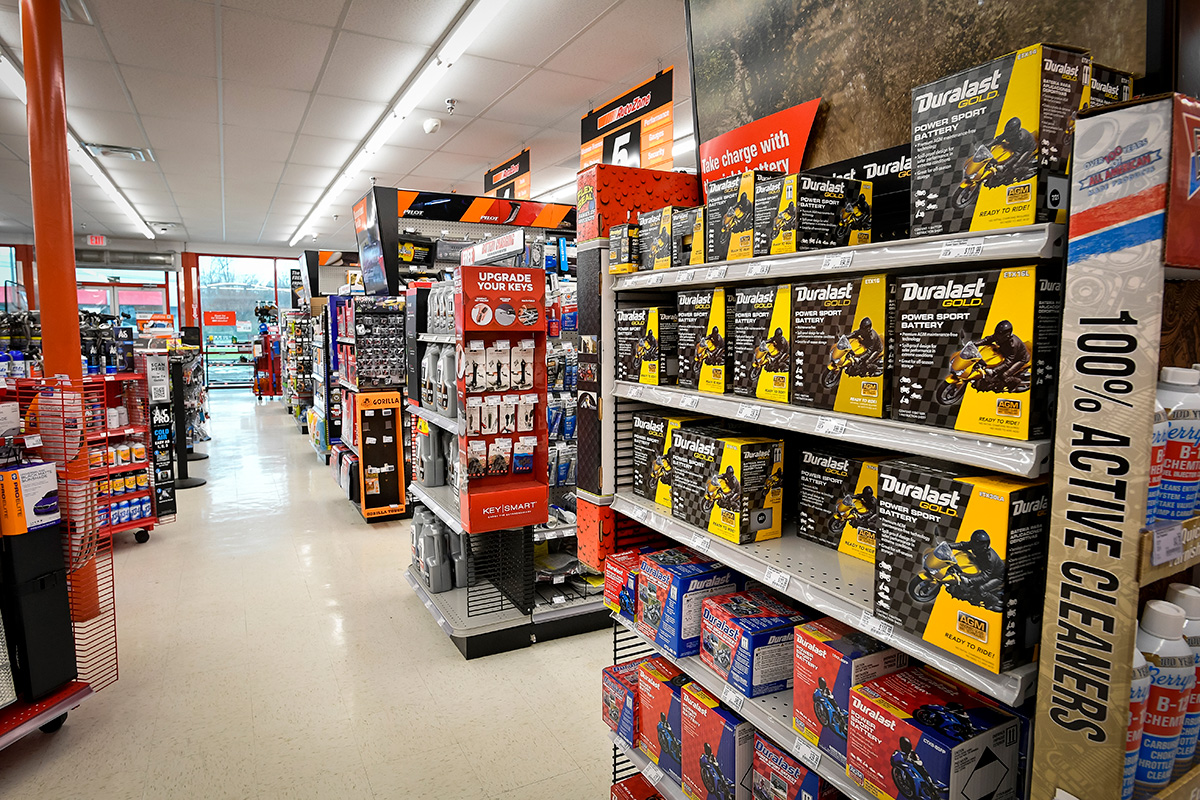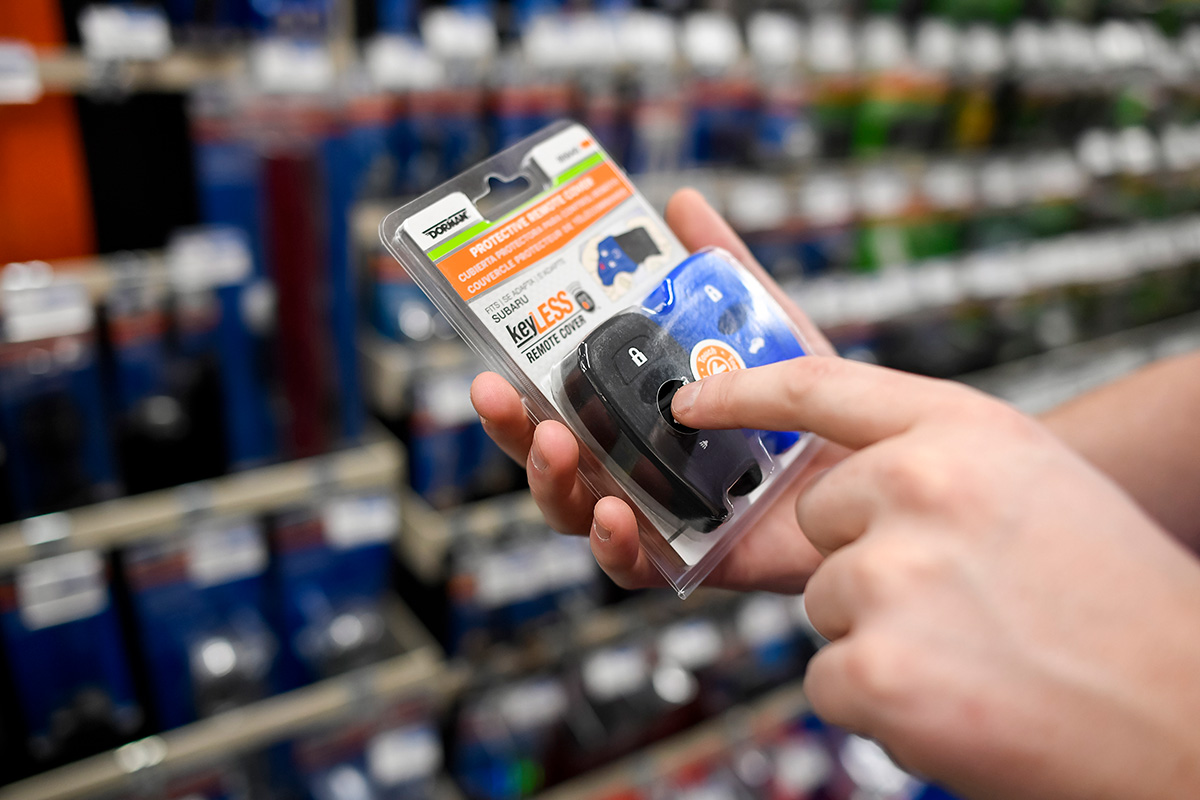“Drive it ‘til the wheels fall off” isn’t the safest decision. So when does it end?

Fronting and facing store shelves is an activity that’s not relegated to auto parts; it’s a common activity for many retail businesses. For those of you who work a counter, I expect you’re nodding along. For those of you reading who may be in an adjacent industry, here’s a brief video on what fronting and facing entails:
The analog in the back of a parts store is putting up freight: unloading the skids of parts the store may receive anywhere from daily to weekly in most cases. This is a task that’s typically issued to drivers and retail counter staff to be completed when not helping customers or running orders, and it’s a shortcut to the wholesale counter.
First, putting up freight gets you intimately familiar with what your store carries. Fronting and facing all those bottles, cans, and planograms helps you see the marketing material parts and chemical companies develop and put on their packages. You’ll learn the names of parts, what they look like if you don’t spend a lot of time under the hood, and you’ll see the features and benefits their manufacturers offer and tout. Have you ever seen the commercial counter staff at your store pop into the front room to get something for a commercial order? Most of the time that inherent ability to go where the product is comes from years of performing this task that’s critical to helping retail customers find products on their own.
And customers can’t buy what they can’t see. If you have freight sitting in a cart and not on a shelf, you’re losing eyeballs on parts that could potentially fatten up a ticket average. Kevin Scholl, a long-time counterman who works on Dorman’s Tech Line, recalled a quote he heard from a colleague. “Parts that have been fronted and faced are like soldiers all dressed and in formation correctly. They just do the job better like that.”
Justin Reynolds, a former counterman and Product Manager in Dorman’s Engine Management Systems division expanded on that point. “Properly stocked and faced stores are more inviting. They also give the customers a bit more confidence that they will find what they are looking for.”
And you likely have a sales component where you’re getting a cut of your ticket totals, right? Who doesn’t like a larger commission check. Knowing your sales floor and spending time on it helps there, too.
“Fronting and facing throughout the day as opposed to just doing it once after the store has closed keeps counterpeople engaged on the sales floor. Getting out from behind the counter makes sales staff more approachable to engage in conversation with the customer. These conversations often lead to recommending additional products to complete a job,” says Steve Saurman, a Senior Applications Editor at Dorman and former parts store manager.

Photo: Mike Apice.
The second reason putting up freight helps your skills and ability as a counter pro is it’s a shortcut to learning about velocity. Probability would dictate that the parts waiting to go onto the shelf are likely fast-turning items. For chemicals and universal parts, this may not be important intel, but when it comes to hard parts, knowing what turns fast gives you insight to study up on why, which can help you be a key player in a technician’s diagnostic process. Not every tech is rigorous about perfect diagnoses, and having information you learned about velocity firsthand can put a technician onto the right track.
If you hang the same part on a hook five times a month, it sticks out and you start learning what parts break most frequently, what vehicles are most common on our roads, and, in the case of Dorman’s HELP!® and OE FIX™ products, what vehicles have endemic problems. And that’s not exclusive to us—other companies supplying your store have similar product lines.
Mentioning a known problem to a professional technician who hasn’t seen a vehicle with a common malady in a bay get that car out faster is what earns you a reputation as a crackerjack counterman. And voices echoing that sentiment are powerful when deciding a future promotion.

Photo: Mike Apice.
Staging wholesale orders for drivers is a great way learn your way around the back of your store. It also helps you determine the most efficient way to pull orders or direct others to do so. Much like your commercial manager directing drivers to groups of stops to be most efficient with your resources, knowing where items are will help you grab a batch of related tickets to pull to save you steps around your store.
Further, you’ll get familiar with where parts live within your store, and likely spots to look for a part that’s “hiding.” Small-box ignition and electrical items have a vastly different storage scheme within most parts stores than bagged transmission lines, exhaust pipes, or lug nuts.
And finally, pulling orders effectively ensures you can keep drivers where they belong: on the road. A ticket that hasn’t been pulled is often a ticking clock for a technician who’s working flat-rate. By keeping orders pulled and staged for drivers, they can immediately “turn and burn,” meaning the delivery vehicle is moving, instead of waiting on nearby orders to be pulled and reducing “return to the store” radio calls for nearby orders that weren’t pulled and discovered after a driver has left.
Making efficient use of resources like that is exactly what’s considered when positions on the commercial counter open up. And let’s not forget that the people you helped load trucks with heavy chemicals and brake rotors will be appreciative and also have a good example of what it is to work as a team, not as a group of soloists—not a bad jumping off point if you wind up managing those same people, is it?
If you want to understand how your store operates, help your teammates move efficiently, help your customers, and help yourself, you should spend time on your feet, not your rear end!
The articles and other content contained on this site may contain links to third party websites. By clicking them, you consent to Dorman’s Website Use Agreement.
Participation in this forum is subject to Dorman’s Website Terms & Conditions. Please read our Comment Policy before commenting.